Irn Bru maker AG Barr 'disappointed' over sugar tax
- Published
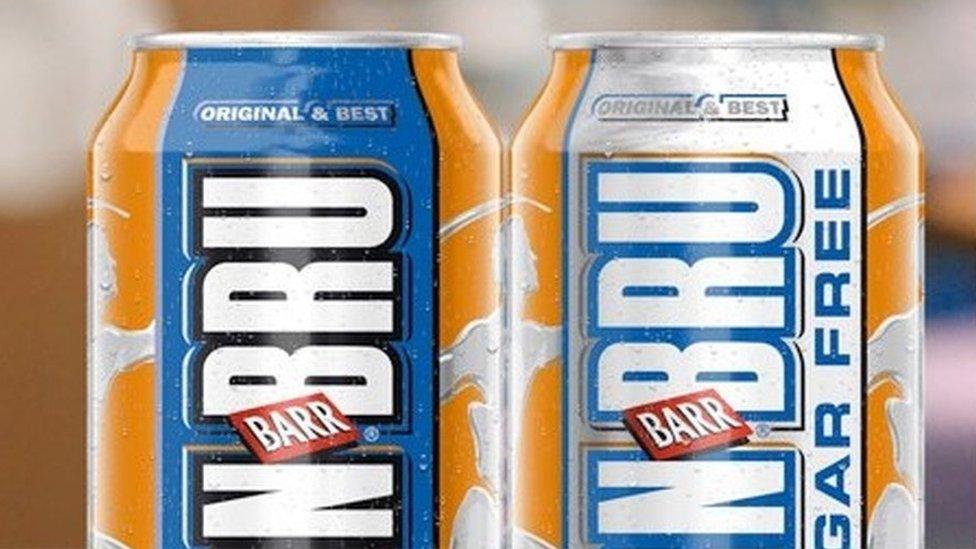
Scottish soft drinks maker AG Barr has said the chancellor's announcement of a sugar tax was "extremely disappointing".
In his budget, UK Chancellor George Osborne unveiled a tax on the makers of sugary soft drinks, in a bid to tackle childhood obesity.
Mr Osborne said the money raised - equivalent to about 18p-24p per litre - would be spent on school sports.
Irn Bru makers Barr said they had already cut sugar levels.
'Singled out'
Chief Executive Roger White said: "It is extremely disappointing that soft drinks have been singled out given it is the only food and drink category to have made any real progress in reducing sugar intake in recent years, down 13.6% since 2012.
"At AG Barr we have reduced the average calorific content across our brand range by 8.8% in just four years and are actively contributing to the soft drinks industry-wide five-year target to make a 20% reduction by 2020.
"We will await further details and ensure that we are fully involved in the consultation process to ensure our position, and progress to date, are well understood."
The sugar tax will be introduced in two years' time and will not apply to fruit juices or milk-based drinks.

Analysis by Eleanor Bradford, BBC Scotland health correspondent
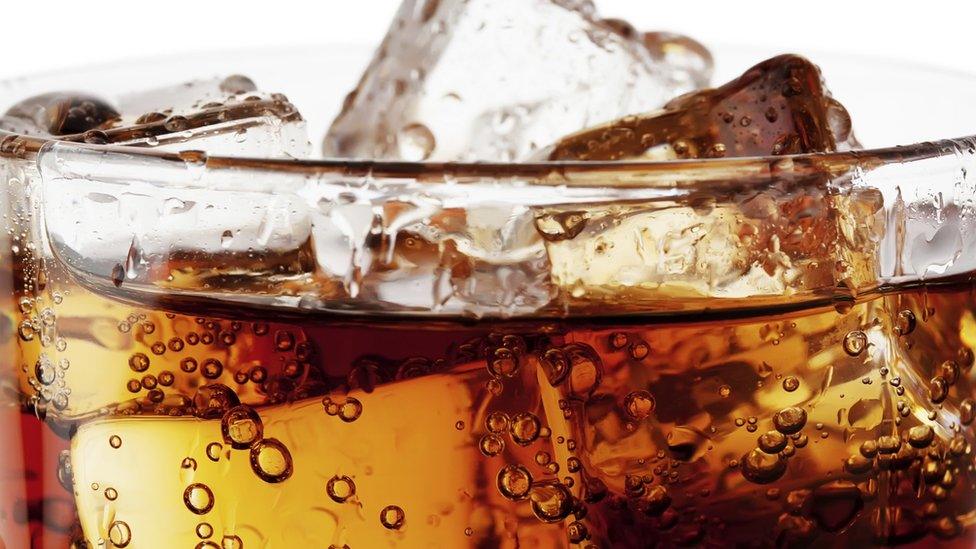
The Scottish Grocers' Federation and the Food and Drink Federation are keen to point out that the majority of soft drinks now sold in the UK are actually low and no calorie.
They say soft drinks contributed 8.8% of household sugar consumption in 2015, down from 10.1% in 2011 - but it depends on how you define "sugar".
If you exclude things like bread and pasta and milk, then soft drinks are the single biggest source of sugar in the diet of Scots, followed by confectionary (12%) and biscuits, cakes and pastries (12%).
People in poorer households drink more sugary drinks than those in richer households (23% in the most deprived areas compared with 14% in the least deprived).
Where do Scots get their sugar rush?
23%
sugary drinks in poorer households
14%
sugary drinks in richer households
-
17% non-diet soft drinks
-
12% confectionery
-
12% biscuits, cakes and pastries

The proposed tax will be levied in two bands:
A higher band for the most sugary drinks with more than 8g per 100 millilitres - adding 8p to the price of a can
A lower band for drinks above 5g per 100 millilitres - adding about 6p to a can or bottle
Pure fruit juices and milk-based drinks are exempt
Scottish Grocers' Federation chief executive Pete Cheema added: "This measure by the chancellor completely ignores the efforts taken by the soft drinks industry to reformulate their products, promote low or no calorie alternatives and the commitment not to advertise high sugar soft drinks to under-16s.
"Additionally - and of great concern to retailers - is that this is likely simply to pass on the cost to consumers This is despite the chancellor suggesting last year that the obesity problem would be best tackled in other ways."
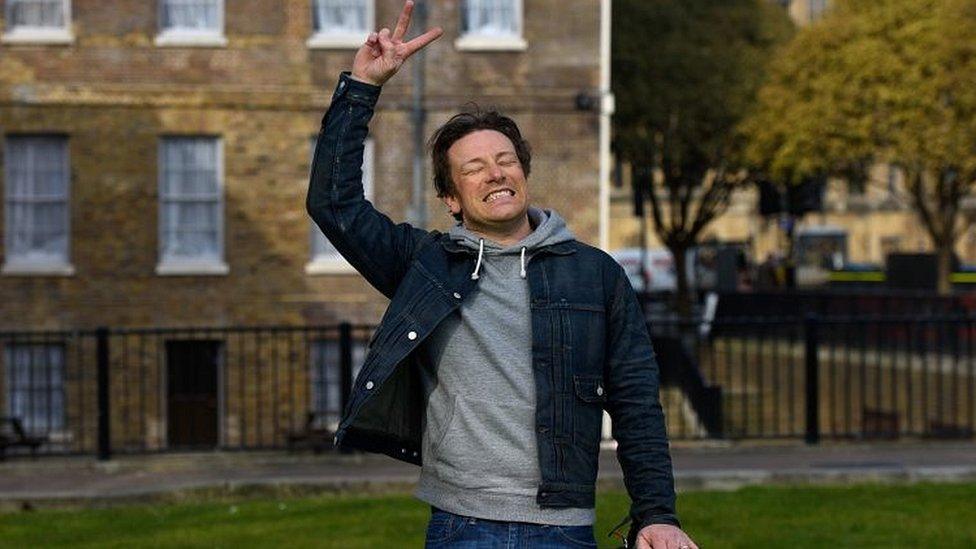
TV chef Jamie Oliver was pleased to hear the sugar tax announcement
Mr Osborne's sugar tax announcement was welcomed by TV chef Jamie Oliver, who has been campaigning for such a move.
He told BBC News it was "a big moment in child health" and a "symbolic slap" to business rather than "anti-business".
Obesity Action Scotland also welcomed the move, saying it was "an important step in tackling Scotland's obesity crisis and improving our national diet".
Programme lead Lorraine Tulloch said: "We hope this is the first of many bold and brave new initiatives to improve the diet of the people of Scotland.
"We must ensure the tax is stringent and effective and that the monies raised are invested in effective obesity prevention programmes in Scotland."
- Published16 March 2016
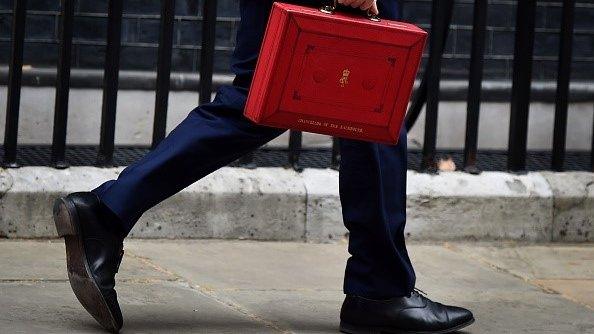
- Published16 March 2016
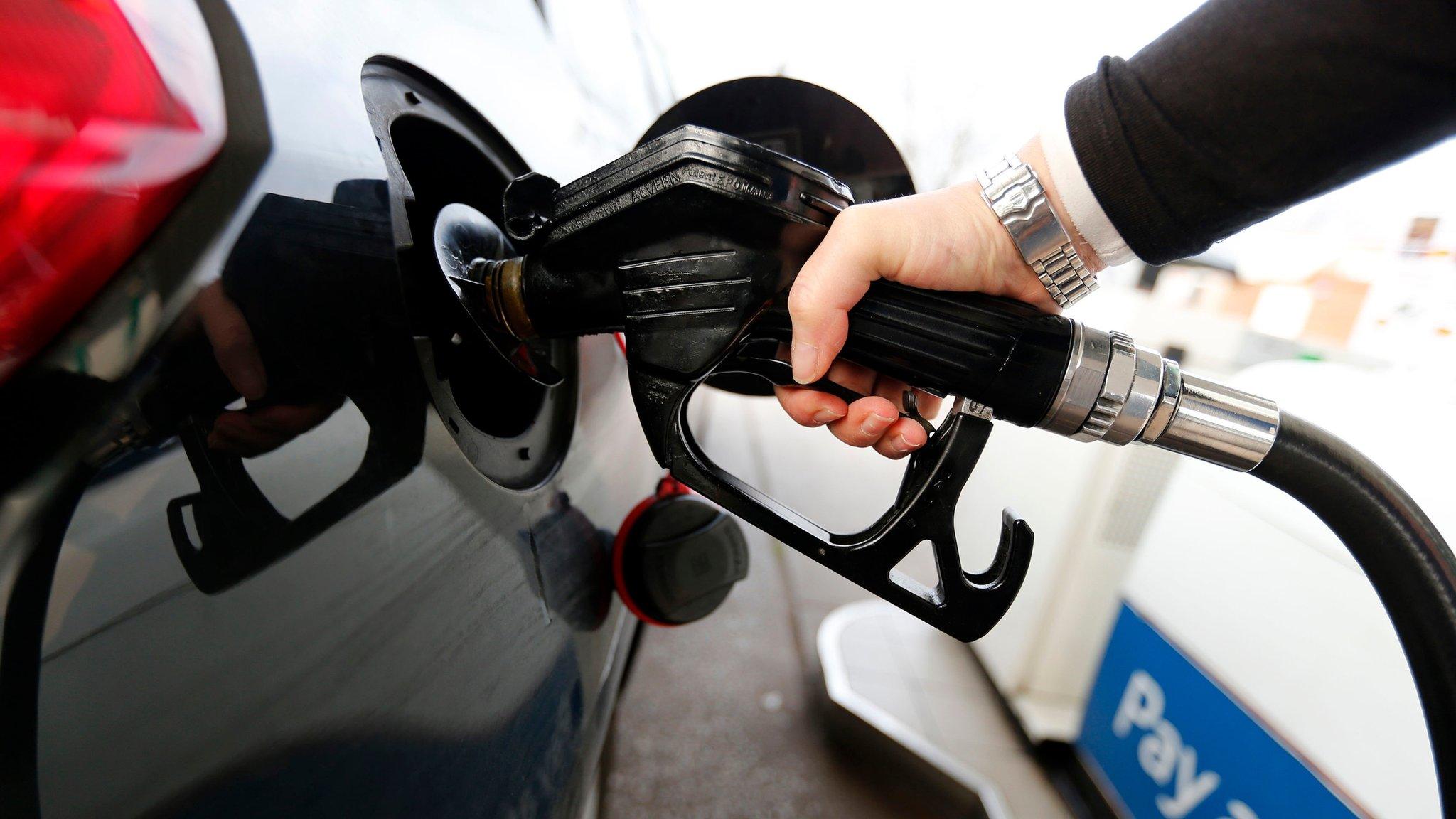
- Published16 March 2016
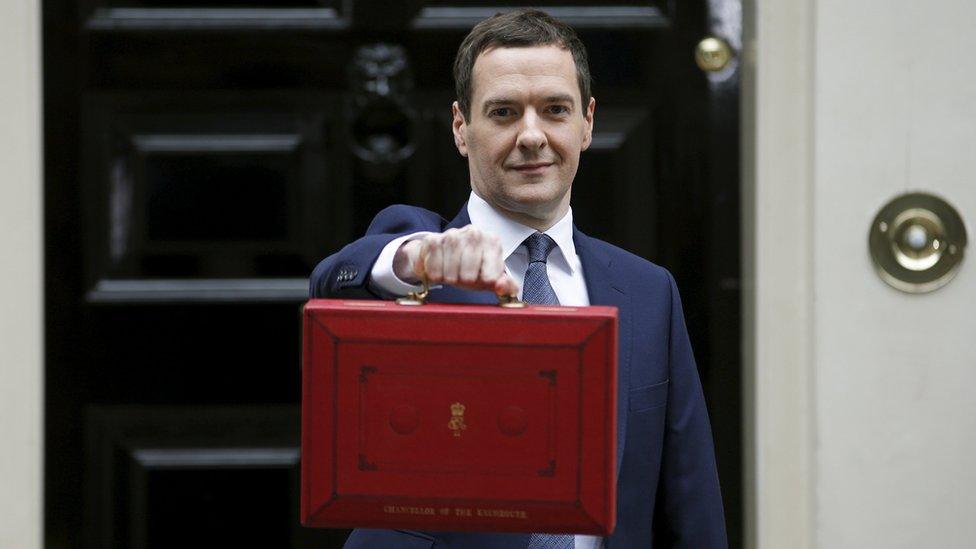
- Published15 March 2016